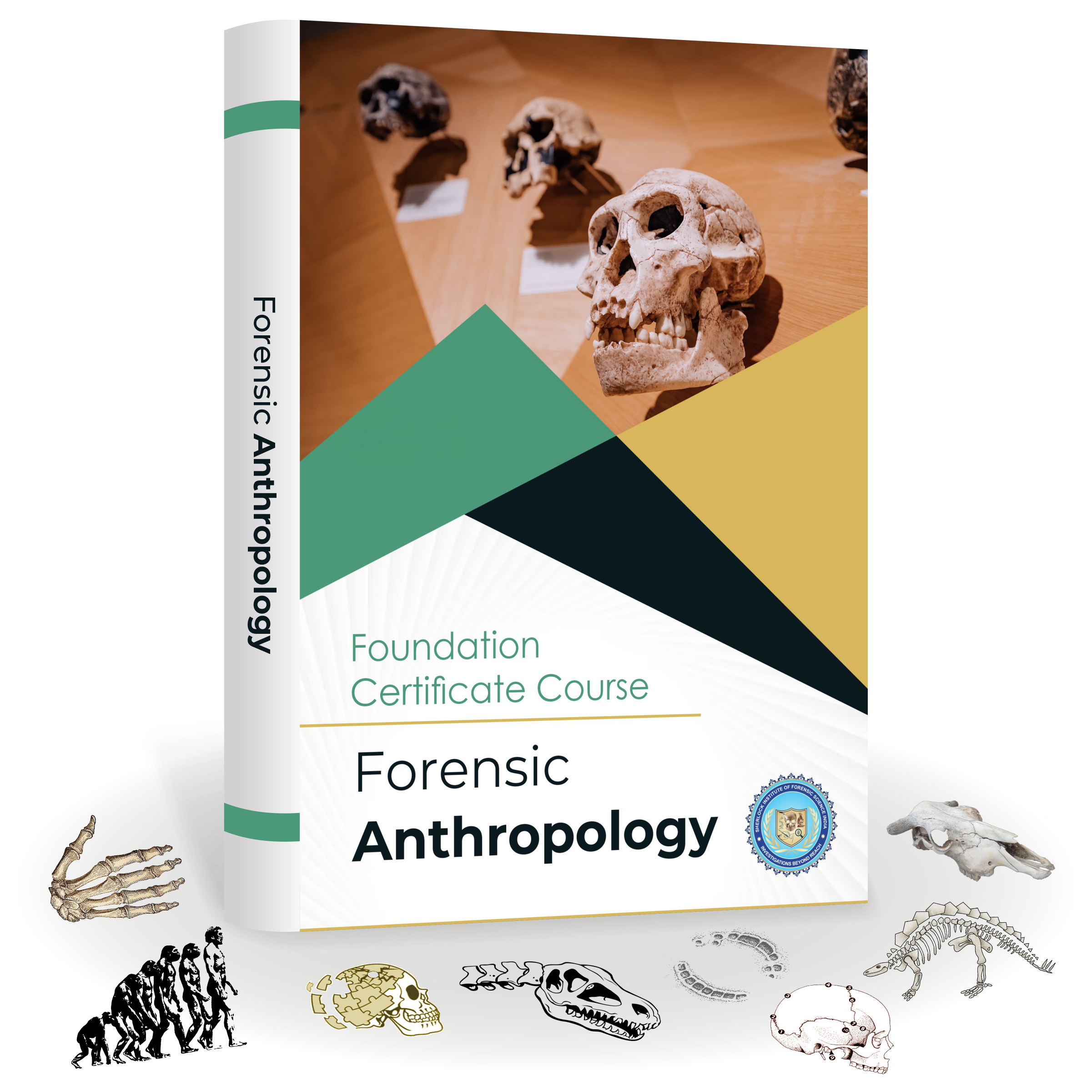The forensic anthropology foundation course was truly enlightening. The modules on human skeletal analysis and identification were incredibly detailed and engaging. A fantastic learning experience overall!

Certification
Foundation Course Certificate
Mode of Study
100% Online Start now and learn from anywhere
Learning Hours
15 hours of Video Sessions
Learning Medium
English
Learn Forensic at Your Own Pace, Master at Your Own Time!
Unlock Your Potential with Self-Paced Learning!
Learn Anytime, Anywhere
No schedules, no pressure! Study at your convenience
Go at Your Own Speed
Master concepts without rushing or slowing down
Full Access to Course Materials
Revisit lessons whenever you need
Expert-Led Content
Gain industry-relevant skills from top instructors
Perfect for Professionals & Students
Balance learning with your lifestyle
Affordable & Cost-Effective
No travel, no extra expenses, just pure learning!
Earn a Recognized Certification
Boost your resume and career prospects
Join Thousands of Successful Learners Today!
Enroll Now & Take Control of Your Learning Journey!
Forensic anthropology involves the application of skeletal analysis to criminal investigations, helping to identify individuals and determine critical details such as age, sex, ancestry, and cause of death. The online Forensic Anthropology Foundation Certificate Course by the Sherlock Institute of Forensic Science will provide you with the specialized skills to analyze human remains and understand the historical and biological significance behind skeletal evidence, making it an essential tool in solving criminal cases.
The pre-recorded course is taught by industry experts and will provide you in-depth knowledge about forensic archaeology, bone identification, osteometry, craniometric measurements, ancestry estimation, burial scene investigations, lab procedures, ways to analyze skeletal remains to uncover important information, and how forensic anthropologists contribute to the investigation of criminal activities and human history.
This certified forensic anthropology course will open doors to new avenues in this field. You can take up more advanced-level courses, thereby making a way for new career opportunities in the criminal justice field, offering you a competitive edge over your peers for positions in forensic science, law enforcement, or related areas. Join us to know the secrets of this interesting and ever-growing field of forensic science and learn how to contribute meaningfully to criminal investigations.
Become Proficient to Answer:
- What is the role of forensic anthropology in criminal investigations?
- How are human skeletal remains assessed to give them an age, sex, and ancestry of the individual that the skeleton belonged to?
- What various techniques are employed to estimate postmortem interval using skeletal remains?
- In what way can trauma on bones be used to determine the cause and manner of death?
- What roles do skeletal anomalies play in forensic analysis?
- In what ways do forensic anthropologists contribute to mass disasters and war crimes?
- What methods are there of determining the identity of a person from skeletal remains?
- How useful is the bone analysis in order to determine the presence of disease or previous injury?
- What other tools or technology are used in the aspect of the identification and analysis of human remains?
- What do forensic anthropologists do, and how do they work with police and attorneys?
- What ethical issues may arise when dealing with human remains in investigations?
- What role does forensic anthropology play in cold or historical case solving?
Learning Outcomes:
Forensic Anthropology Understanding: This course will provide you with an understanding of how to analyze human remains for forensic investigations aimed at determining identification and cause of death.
Human Remains Analysis: You will develop skills to analyze skeletal remains and interpret signs of trauma, disease, and age to support criminal investigations.
Identification Techniques: You will learn the methods used in identifying unknown human remains, including facial reconstruction and comparison with missing persons databases.
Dental Evidence Significance: You will understand what role dental records and bite mark analysis play in identifying victims or suspects in forensic investigations.
Ethical and Legal Considerations: You will learn the ethical and legal responsibilities when dealing with human remains and presenting forensic findings in a court of law.
Course Details:
Fee | National: 1770 INR (1500 INR + 18% GST) International: 50 USD |
Duration | 1 Month |
Eligibility | 12th Passed |
Session Timing | Learn with your own Pace |
Payment Details:
International Student : PayPal: forensicdocument@gmail.com
Account Details for National Student
Bank Name - ICICI BANK
Acc. Name - SIFS INDIA PVT. LTD.
Account No. - 663505500086
Type - Current
IFSC Code - ICIC0000160
Address - ICICI Bank, H-4, Model Town -III, New Delhi - 110009






